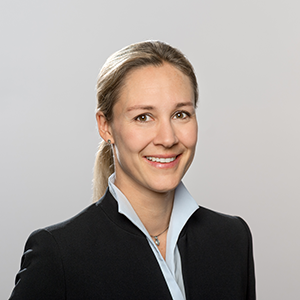
Claudia Peus has been Professor of Research and Science Management at the TU Munich since May 2011, Senior Vice President for Talent Management and Diversity since October 2017, and founding director of the TUM Institute for LifeLong Learning (TUM IL3) since December 2019. After completing her doctorate at LMU Munich, she worked as a Visiting Scholar at the Sloan School of Management, Massachusetts Institute of Technology and as a Post-Doctoral Fellow at Harvard University.
In her research, Prof. Peus focuses on leadership and leadership development in the digital age, the management of research organizations, and diversity in organizations. She is a member of various boards, such as the management board of RWI - Leibniz Institute for Economic Research, the board of trustees of the „Wertekommission“ and the Max Planck Institute for Physics, and advises organizations from business and science on topics such as leadership, diversity, and talent management. In 2020, Prof. Peus was included in the list of "Germany's Most Inspiring Women".
Multiple Team Membership: In cooperation with colleagues from INSEAD and LMU and supported by an international professional service firm we investigate the impact multiple-team membership has on team members’ attitudes and team performance over time. Implications for leading project-based organizations will be derived.
Does the place make the people? The role of leadership and work climate for moral and prosocial socialization in the workplace: In a DFG-funded research project we are investigating how facets of (un)ethical leadership interact with the work climate in teams and organizations. The main objective is to examine these two areas in terms of their socialization potential for the moral and prosocial development of employees. A longitudinal study with newcomers over three years will allow the identification of potential socialization effects over time, including effects on wellbeing and performance.
TUM Neurophysiological Leadership Laboratory (NeLeLab): The TUM Neurophysiological Leadership Lab (funded by the European Union and the Excellence Strategy of the Federal Government and the Länder) is designed to integrate neurophysiological methodology with social science research. We commit to a twofold mission: On the one hand, we apply empirical strategies and specific methods including general behavioral neuroscience, electroencephalogram, brain stimulation, eye tracking, and social robotics to the study of various forms of leadership – including destructive leadership – and their perception by followers. Thereby, we focus on intraindividual antecedents and consequences within leaders and followers on the level of cognition, affect, and behavior. On the other hand, we advance methodological literacy with respect to experimental research and neuroscience. Our lab team teaches different audiences within TUM (e.g., Bachelor, Master, Executive Education students from various fields of social science) on the application of neurophysiological and experimental methodology.
FührMINT II: This BMBF-funded project investigates gender-specific differences in the perception and evaluation of destructive leadership in academia, again with a special focus on the male-dominated STEM disciplines. Within the project, we aim to determine the prevalence of perceived destructive leadership of male and female professors in STEM disciplines in Germany, and investigate gender differences and the role of gender stereotypes in the perception and evaluation of destructive leader behaviors.